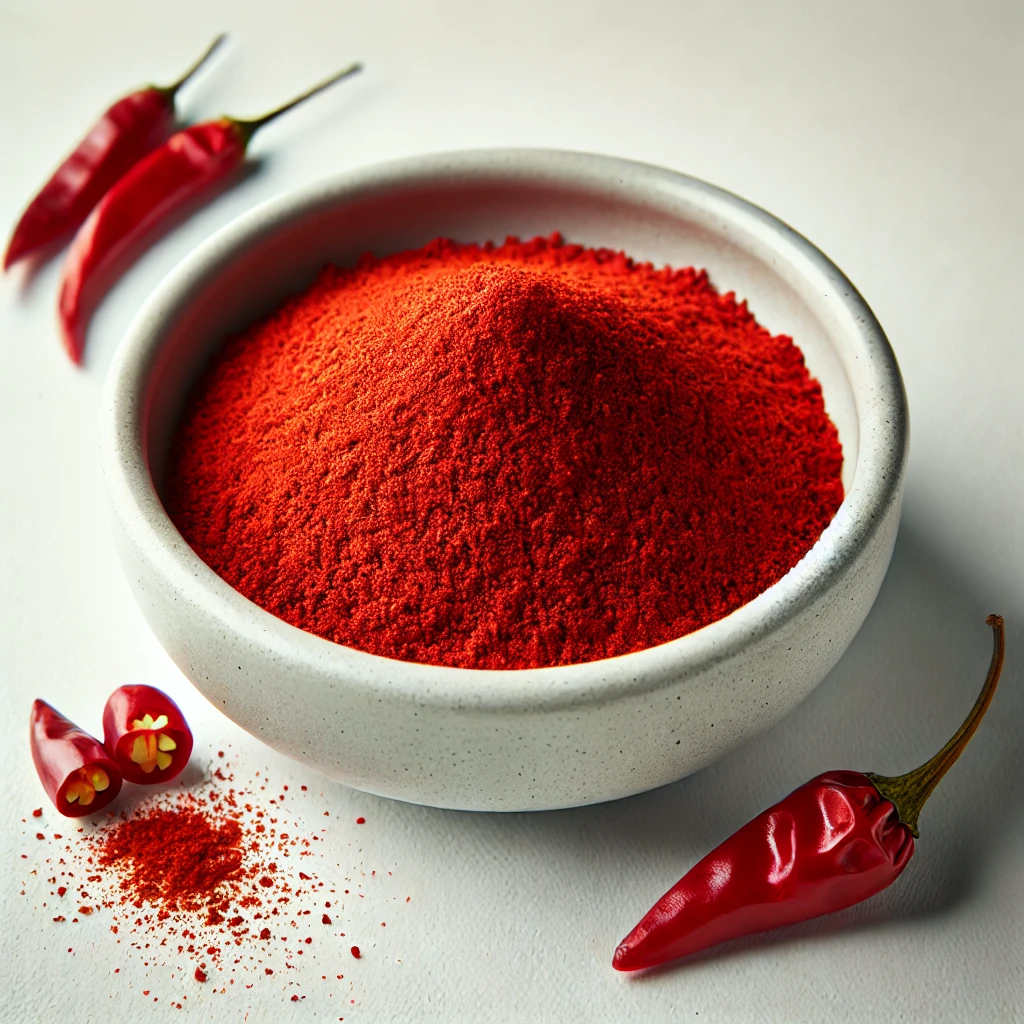Chilie Powder
₹175.00 – ₹700.00
The History and Origins of Chilli Powder
The history of chilli powder stretches back thousands of years, rooted in the cultivation of chilli peppers, which originated in Central and South America. Archaeological evidence suggests that these peppers were domesticated around 6,000 years ago. Indigenous peoples of these regions began using chilli peppers for both culinary and medicinal purposes. The use of spices and flavors was an integral part of their diet, and chilli peppers added a distinctive heat that was admired and sought after.
The journey of chilli powder took a significant turn following the arrival of Europeans in the Americas during the Age of Exploration in the late 15th century. As explorers like Christopher Columbus returned to Europe, they brought with them an array of new foods, including chilli peppers. This introduction to the European palate was the catalyst for the eventual global spread of chilli powder. It was quickly embraced as a staple in various cuisines, not least for its flavor profile and preservative qualities, effectively revolutionizing cooking practices across continents.
This versatile spice is now a global commodity, bridging culinary traditions from Mexican salsas to Indian curries. Its ability to layer dishes with depth and complexity has ensured its permanent place in kitchens around the world. Understanding the rich history and origins of chilli powder allows us to appreciate its profound impact on culinary practices, highlighting how a single ingredient can connect diverse cultures through shared flavors.
Culinary Uses and Health Benefits of Chilli Powder
Chilli powder is an essential spice that adds a distinctive heat and vibrant flavor to a wide array of culinary creations. Its versatility allows it to enhance various dishes, from soups and stews to marinades and sauces, thus playing a crucial role in elevating the overall taste experience. Chefs and home cooks alike appreciate how different varieties of chilli powder can significantly influence the flavor profile of a dish; for instance, smoky chipotle chilli powder adds depth, while cayenne pepper lends a sharper, more intense heat. The ability of chilli powder to complement both savory and sweet recipes showcases its unique adaptability in the kitchen.
In addition to its flavor-enhancing capabilities, chilli powder also boasts numerous health benefits. One of its key components, capsaicin, has been credited with potential antioxidant properties that may help to combat oxidative stress within the body. These antioxidant effects can support overall health and may even contribute to reducing the risk of certain chronic diseases. Furthermore, chilli powder has been associated with metabolism-boosting effects, which can aid in weight management by potentially increasing energy expenditure following meals. This makes it a valuable ingredient for those looking to incorporate more health-conscious elements into their diet.
Moreover, chilli powder is rich in essential vitamins and minerals, including vitamins A, C, and E, as well as potassium and iron. These nutrients play essential roles in maintaining physical health, supporting immune function, and ensuring proper cellular functioning. Additionally, the presence of capsaicin is being studied for its anti-inflammatory properties, which may offer further benefits for conditions characterized by inflammation. As such, including chilli powder as a part of a balanced diet can provide not only flavor but also substantial nutritional advantages.
| Weight | 1 kg |
|---|---|
| Weight | 1Kg, 250gms, 500gms |
Related products
Fish Pickle / Koramen Fish Pickle
₹500.00 – ₹2,000.00- 1Kg
- 250gms
- 500gms
Andhra Lemon Pickle
₹163.00 – ₹650.00- 1Kg
- 250gms
- 500gms
Andhra Tamota Pickle
₹163.00 – ₹650.00- 1Kg
- 250gms
- 500gms
Janthikalu | Chakralu | Murukulu
₹150.00 – ₹600.00- 1Kg
- 250gms
- 500gms
Gongura Mutton Pickle
₹500.00 – ₹2,000.00- 1Kg
- 250gms
- 500gms






